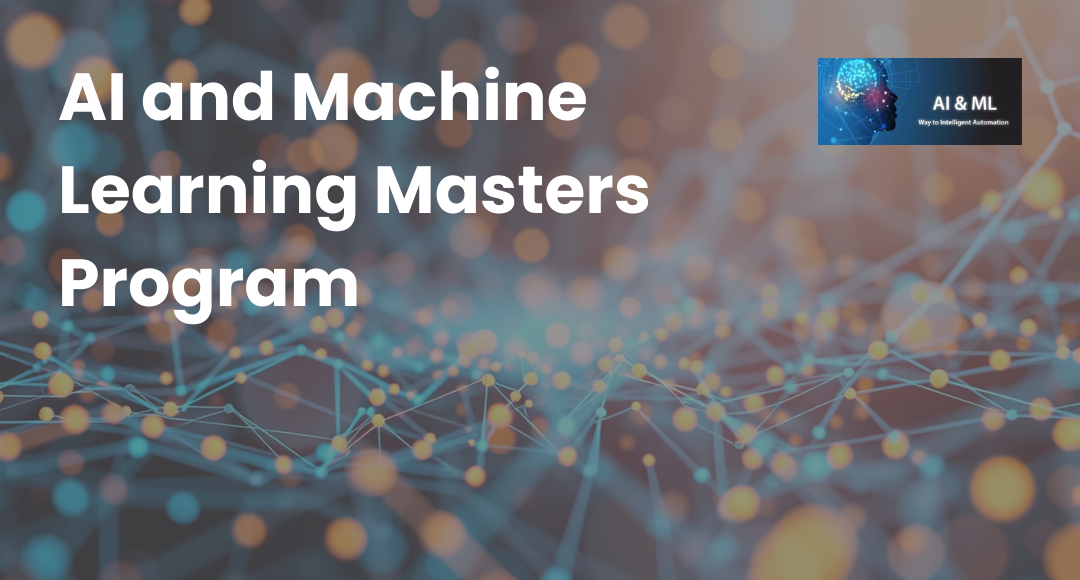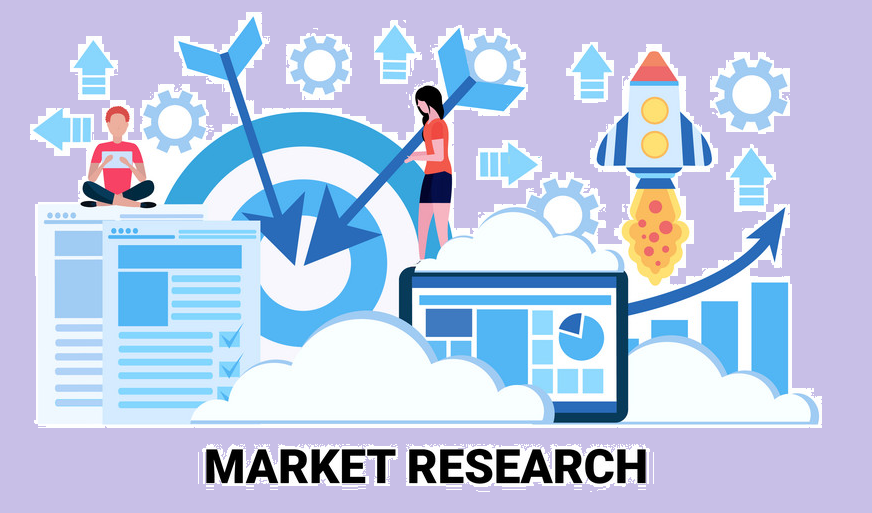Data Science vs Machine Learning - Differences Explained
-
 By Nchumbeni Yanthan
By Nchumbeni Yanthan - Published on Jan 19 2023

Table of Contents
- Data Science vs Machine Learning - A brief Introduction
- What is Data Science?
- What is Machine Learning?
- Data Science vs Machine Learning: Its Advantages
- Data Science vs Machine Learning: Its Disadvantages
- Data Science vs Machine Learning: Career Scope and Salary
- Which One to Opt for?
- Frequently Asked Questions
Data Science vs Machine Learning - A brief Introduction
Data science vs machine learning is greatly distinct because of the advancement of big data and analytics and the ability to handle varieties of data with machine learning over the past years.
The difference between data science and machine learning plays hand-in-hand with data to improve performance and measure estimate outcomes.
Machine Learning is a subdivision of data science but the explanation keeps expanding with each advancement. The relation between data science and machine learning is interrelated, as machine learning is a branch of AI, positioned within data science.
The data science and machine learning difference in process of technologies. Data science studies the data and machine learning focuses on insights about the customers and target market.
The majority of people arise the question, is data science and machine learning the same?
The discussion could go on to bring the comparison, which the two fields have a set of pros and cons that is interrelated and very useful for organizations.
Dive into the comparison guide with the difference between data science and machine learning difference.
What is Data Science?
Data Science is an interdisciplinary field that involves data extraction from structured and unstructured data with the use of scientific methods, algorithms, systems, tools, and processes.
The field of data science is effective in businesses and any scale organizations to drive profits, infrastructure, better products and services, and more. It is a technique to find hidden patterns from underdone data.
Well, the technology in data science interprets an issue into research and then interprets it back into a solution. Data science has appeared vital because of the surging growth of big data, statistics, and data analysis.
Also, cover more: Data Science Vs Data Analytics Vs Big Data
How does it work?
- Reads the issues
- Gather data and insights
- Process raw data
- Explore the data
- Analyze the data
- Convey the outcome
Skill Sets
- Business acumen
- Data Visualization
- Data Wrangling
- Deep Learning
- Expertise in mathematics
- Machine Learning
- Programming
- Process large data sets
- Statistical analysis and computing
- Technology hacking skills

What is Machine Learning?
Machine Learning is a branch of artificial intelligence that extracts data by using algorithms to predict future trends. It is a combination of machine and data science.
Machine learning utilizes two types of techniques:
Supervised learning: These methods direct a model on known input and output data to estimate or predict expected and future results.
Unsupervised learning: this method focuses to find hidden patterns or intrinsic structures in input data.
The question pops out as to whether machine learning or data science has a better future.
Machine learning blends data and statistical tools to predict an output, and this information to use to improvise and develop actionable data. Simply put, the machine takes data as input and uses algorithms to get creative solutions.
The idea that a machine can study data to predict accurate results is closely related to data mining.
How does it work?
The major focus keeps on predictions based on known properties derived from the given data. With applying complex mathematical calculations, given below are the detailed methods:
- Collect data
- Prepare data
- Choose model
- Direct the data model
- Evaluate model
- Parameter tuning
- Predict Outcome
Skill Sets
- Complexity
- Computer Architecture
- Data Modeling
- Data Structures
- ML Libraries & Algorithms
- ML Programming Languages
- Probability
- Programming
- Software Design
- Statistics
Suggested read: How To Become A Machine Learning Engineer
Data Science vs Machine Learning: Its Advantages
Below are a few comparisons of the advantages of Data Science vs Machine Learning,
Applications of Data Science
- Fraud Detection
- Gaming World
- Internet Search
- Image & Speech Recognition
- Logistics
- Online Price Comparison
- Recommendation Systems
Applications of Machine Learning
- Automation
- Dynamic Pricing
- Finance Industry
- Google Translate
- Government Organization
- Healthcare Industry
- Image Recognition
- Product recommendations
- Speech Recognition
- Traffic alerts
- Transportation and Commuting
- Virtual Personal Assistants
Data Science vs Machine Learning: Its Disadvantages
A few of the limitations of Data Science vs Machine Learning include,
With Data Science:
Risk of data privacy
Mastering data is challenging
Need a massive amount of domain knowledge
Inconsistent data may bring results without notice
Inappropriate prediction can lead to a huge loss
With Machine Learning:
High chance of error
Algorithm selection
Interpretation of result
Data Acquisition or data acquiring
Time and resource

Data Science vs Machine Learning: Career Scope and Salary
Aside from the comparison what is the difference between data science and machine learning? Both two fields are in-demand with high-paying salaries, especially with the current evolving digitalization.
From data-driven decision-making to several benefits, data science is a promising field for many job positions. Additionally, the data analyst job market is looking to grow at a rate of 18% by 2024.
Likewise, there are various opportunities, demands, and growth of postings with machine learning. The career path scope is expected to expand higher and will influence future careers,
As per Glassdoor, the average salary for a Machine Learning Engineer is $162,358 per year. The estimated base pay is $141,243 per year.
While the average salary for a Data Scientist is $103,181 per year. The estimated total pay is $125,141 per year in the United States.
Career in Data Science as,
Business IT Analyst
Business Intelligence Analyst
Business Intelligence Developer
Data Scientist
Data Analyst
Data Engineer
Data Architects and Administrators
Machine Learning Engineer
Statisticians and Mathematicians
Marketing Analyst
Career in Machine Learning as,
AI Engineer
Business Intelligence (BI) Developer
Computer Vision Engineer
Data Mining and Analysis
Data Scientist
Machine Learning Scientist
Machine Learning Engineer
Machine Learning Researchers
Natural Language Processing (NLP) Scientist
Which One to Opt for?
As fast and advancing technology improvises with data science, AI, and machine learning, the world would witness even higher advancement. From the comparison discussed, both two fields are emerging fields of high growth and their demand at the current and the future will surge.
The immense need for data analytics to have data-driven recommendations and decisions and insights on customers and audiences has relevantly made both data science and machine learning.
Organizations look for experts in such fields to understand their customers and build solutions that profit the business scale.
Therefore, a certification in the very field is the perfect asset that could be valuable to your career. To master skills and broaden more knowledge about artificial intelligence to enhance your career, enroll in Sprintzeal’s AI and Machine Learning Masters Program.
To explore course certification programs in your field, do visit Sprintzeal’s all-courses that suit best WITH your career interests.
For any queries or related questions, you can send an email at Click Here or get instant help by on the chat with course expert.
Frequently Asked Questions
Is data science the same as machine learning?
Machine learning is a subfield of machine learning. Data science studies data and how to extract information, whereas machine learning aims to understand and build methods by using the data to predict outcomes or improve performance.
Is data science easier than machine learning?
The consensus is that data science is a little simpler to grasp in comparison to machine learning.
Should I learn data science first or machine learning?
It depends on the learner's choice to choose the course of interest beneficial for their career. Moreover, both two fields are interconnected with the concepts of data.
Subscribe to our Newsletters
Popular Programs
Artificial Intelligence Certified Executive (AICE) AI3090
Live Virtual Training
- 4.4 (650 + Ratings)
- 48k + Learners
Artificial Intelligence Foundation (AIF) AI3010
Live Virtual Training
- 4.5 (650 + Ratings)
- 32k + Learners
Certified Artificial Intelligence Expert (CAIE) AI3050
Live Virtual Training
- 4.6 (650 + Ratings)
- 43k + Learners
Certified Computer Vision Expert (CCVE) AI3080
Live Virtual Training
- 4.6 (650 + Ratings)
- 67k + Learners
Certified Machine Learning Associate (CMLA) AI3020
Live Virtual Training
- 4.3 (650 + Ratings)
- 53k + Learners
Certified Natural Language Processing Expert (CNLPE) AI3070
Live Virtual Training
- 4.7 (650 + Ratings)
- 51k + Learners
Trending Posts
Bringing Your Scripts to Life with CapCut’s Text-to-Speech AI Tool
Last updated on Aug 5 2025
Machine Learning Algorithms - Know the Essentials
Last updated on Dec 28 2023
Explore Short AI: A Game-Changer for Video Creators - Review
Last updated on May 30 2025
The Professional Guide to Localizing YouTube Content with AI Dubbing
Last updated on Jan 14 2026
How to Use ChatGPT to Improve Productivity?
Last updated on Mar 5 2025
Audioenhancer.ai: Perfect for Podcasters, YouTubers, and Influencers
Last updated on Jul 15 2025
Categories
- Other 73
- Agile Management 49
- Cloud Computing 57
- Project Management 174
- Big Data 68
- Business Management 88
- Digital Marketing 82
- IT Service Management 29
- Programming Language 59
- AI and Machine Learning 86
- IT Security 113
- Quality Management 78
- IT Hardware and Networking 26
- Microsoft Program 5
- Workplace Skill Building 15
- Risk Management 9
- Information Security 8
- Leadership and Management 9
- Corporate Training and Development 1
Trending Now
Consumer Buying Behavior Made Easy in 2026 with AI
Article7 Amazing Facts About Artificial Intelligence
ebookMachine Learning Interview Questions and Answers 2026
ArticleHow to Become a Machine Learning Engineer
ArticleData Mining Vs. Machine Learning – Understanding Key Differences
ArticleMachine Learning Algorithms - Know the Essentials
ArticleMachine Learning Regularization - An Overview
ArticleMachine Learning Regression Analysis Explained
ArticleClassification in Machine Learning Explained
ArticleDeep Learning Applications and Neural Networks
ArticleDeep Learning vs Machine Learning - Differences Explained
ArticleDeep Learning Interview Questions - Best of 2026
ArticleFuture of Artificial Intelligence in Various Industries
ArticleMachine Learning Cheat Sheet: A Brief Beginner’s Guide
ArticleArtificial Intelligence Career Guide: Become an AI Expert
ArticleAI Engineer Salary in 2026 - US, Canada, India, and more
ArticleTop Machine Learning Frameworks to Use
ArticleData Science vs Artificial Intelligence - Top Differences
ArticleCognitive AI: The Ultimate Guide
ArticleTypes Of Artificial Intelligence and its Branches
ArticleWhat are the Prerequisites for Machine Learning?
ArticleWhat is Hyperautomation? Why is it important?
ArticleAI and Future Opportunities - AI's Capacity and Potential
ArticleWhat is a Metaverse? An In-Depth Guide to the VR Universe
ArticleTop 10 Career Opportunities in Artificial Intelligence
ArticleExplore Top 8 AI Engineer Career Opportunities
ArticleA Guide to Understanding ISO/IEC 42001 Standard
ArticleNavigating Ethical AI: The Role of ISO/IEC 42001
ArticleHow AI and Machine Learning Enhance Information Security Management
ArticleGuide to Implementing AI Solutions in Compliance with ISO/IEC 42001
ArticleThe Benefits of Machine Learning in Data Protection with ISO/IEC 42001
ArticleChallenges and solutions of Integrating AI with ISO/IEC 42001
ArticleFuture of AI with ISO 42001: Trends and Insights
ArticleTop 15 Best Machine Learning Books for 2026
ArticleTop AI Certifications: A Guide to AI and Machine Learning in 2026
ArticleHow to Build Your Own AI Chatbots in 2026?
ArticleGemini Vs ChatGPT: Comparing Two Giants in AI
ArticleThe Rise of AI-Driven Video Editing: How Automation is Changing the Creative Process
ArticleHow to Use ChatGPT to Improve Productivity?
ArticleTop Artificial Intelligence Tools to Use in 2026
ArticleHow Good Are Text Humanizers? Let's Test with An Example
ArticleBest Tools to Convert Images into Videos
ArticleFuture of Quality Management: Role of Generative AI in Six Sigma and Beyond
ArticleIntegrating AI to Personalize the E-Commerce Customer Journey
ArticleHow Text-to-Speech Is Transforming the Educational Landscape
ArticleAI in Performance Management: The Future of HR Tech
ArticleAre AI-Generated Blog Posts the Future or a Risk to Authenticity?
ArticleExplore Short AI: A Game-Changer for Video Creators - Review
Article11 Undetectable AI Writers to Make Your Content Human-Like in 2026
ArticleHow AI Content Detection Will Change Education in the Digital Age
ArticleWhat’s the Best AI Detector to Stay Out of Academic Trouble?
ArticleAudioenhancer.ai: Perfect for Podcasters, YouTubers, and Influencers
ArticleHow AI is quietly changing how business owners build websites
ArticleMusicCreator AI Review: The Future of Music Generation
ArticleHumanizer Pro: Instantly Humanize AI Generated Content & Pass Any AI Detector
ArticleBringing Your Scripts to Life with CapCut’s Text-to-Speech AI Tool
ArticleHow to build an AI Sales Agent in 2026: Architecture, Strategies & Best practices
ArticleRedefining Workforce Support: How AI Assistants Transform HR Operations
ArticleTop Artificial Intelligence Interview Questions for 2026
ArticleHow AI Is Transforming the Way Businesses Build and Nurture Customer Relationships
ArticleBest Prompt Engineering Tools to Master AI Interaction and Content Generation
Article7 Reasons Why AI Content Detection is Essential for Education
ArticleTop Machine Learning Tools You Should Know in 2026
ArticleMachine Learning Project Ideas to Enhance Your AI Skills
ArticleWhat Is AI? Understanding Artificial Intelligence and How It Works
ArticleHow Agentic AI is Redefining Automation
ArticleThe Importance of Ethical Use of AI Tools in Education
ArticleFree Nano Banana Pro on ImagineArt: A Guide
ArticleDiscover the Best AI Agents Transforming Businesses in 2026
ArticleEssential Tools in Data Science for 2026
ArticleLearn How AI Automation Is Evolving in 2026
ArticleGenerative AI vs Predictive AI: Key Differences
ArticleHow AI is Revolutionizing Data Analytics
ArticleWhat is Jasper AI? Uses, Features & Advantages
ArticleWhat Are Small Language Models?
ArticleWhat Are Custom AI Agents and Where Are They Best Used
ArticleAI’s Hidden Decay: How to Measure and Mitigate Algorithmic Change
ArticleAmbient Intelligence: Transforming Smart Environments with AI
ArticleConvolutional Neural Networks Explained: How CNNs Work in Deep Learning
ArticleAI Headshot Generator for Personal Branding: How to Pick One That Looks Real
ArticleWhat Is NeRF (Neural Radiance Field)?
ArticleRandom Forest Algorithm: How It Works and Why It Matters
ArticleWhat is Causal Machine Learning and Why Does It Matter?
ArticleThe Professional Guide to Localizing YouTube Content with AI Dubbing
ArticleMachine Learning for Cybersecurity in 2026: Trends, Use Cases, and Future Impact
Article











